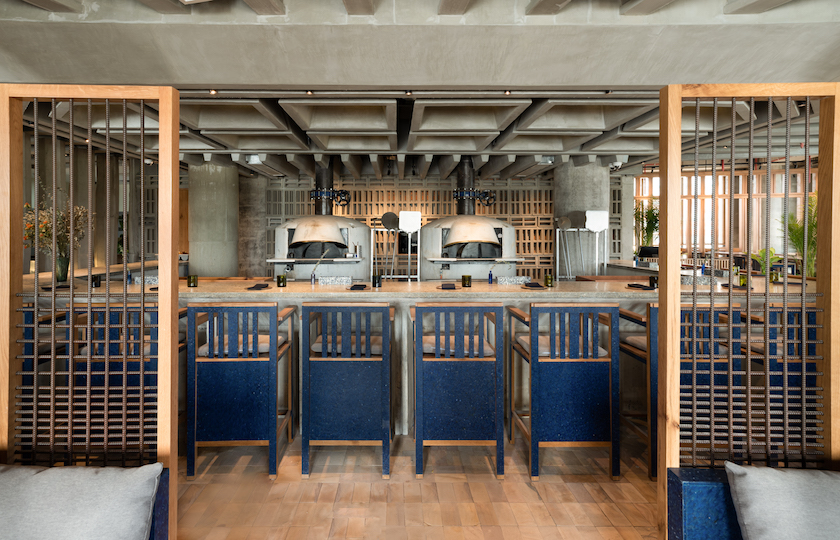In the heart of Cambodia’s capital city, Phnom Penh, fast-growing Vietnam-headquartered restaurant chain Pizza 4P’s has opened a zero-waste sustainable restaurant concept.
Becoming a common term in the last few years, the zero-waste dining concept has evolved into a movement that looks likely to expand beyond fast-casual restaurants in the future. However, many wonder how a restaurant can move forward with zero waste, especially when sustainability doesn’t normally generate profits directly.
In the case of Pizza 4P’s, the definition of zero-waste expands well beyond eliminating food waste and single-use plastics.
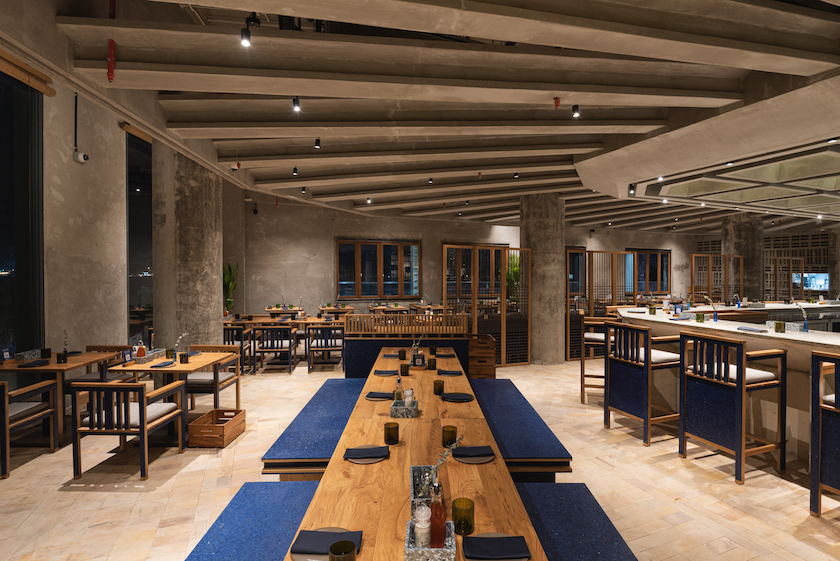
As Yuma Nagata, sustainability manager at Pizza 4P’s, explains to Viable.Earth, the company’s sustainability commitment runs through the entire restaurant, including its architecture, interior design, furniture and utensils – as well as the food, of course.
“At Pizza 4P’s, sustainability means many things, not just farming or energy, but more like food waste, packaging, resources, diversity, equality, or more,” Nagata says. “As a sustainability manager, I need to think about how we can improve ourselves. If we find issues related to sustainability, we will research to find a solution so we can change or improve it.”
The commitment to zero waste began from the beginning right from when the store was built. Construction waste was minimal. Leftover wood from constructing flooring was used to make baskets for diners’ bags, or wooden serving platters.
“When we built the new store, we had plastic covers to protect dust from the construction site,” recalls Nagata. “We are looking into upcycling that covers to make eco bags as that material is very durable. We are designing the shape and hopefully, we can start producing and selling these in the store in the future.”
Food waste repurposed
Unquestionably, for any sustainable restaurant, food waste accounts for the largest amount of garbage. And to achieve zero waste, tackling this problem was prioritised. At Pizza 4P’s Cambodia, most of the swill is collected by partner, Ruy Reach. It is repurposed as food for Black Soldier Fly larvae which, when fully grown, are dried and sold as food for fish and shrimp due to its high protein content. Discarded pizza dough is turned into bait for crickets by local farming company Ecologie.
Other food waste – such as clamshells, crab shells and eggshells that cannot be used as food for insects – is pulverised into powder, which is then used as a source of calcium for chickens. The restaurant also creates a “circular pizza” which uses ingredients that are fed with left-over food from the Cambodian store, such as Eggscellent’s cage-free eggs fed with clam shell waste.
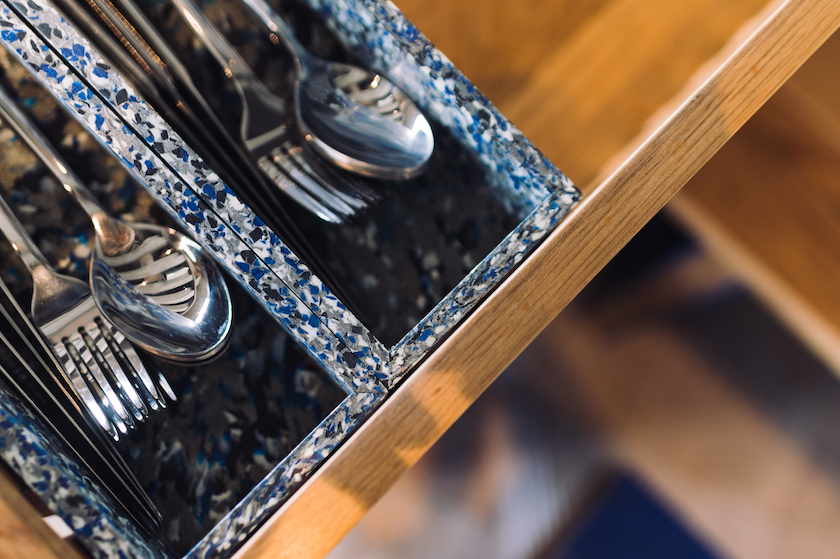
Sustainability solutions can also be seen through the pizza restaurant’s interior. Pizza 4P’s collaborated with a Vietnamese partner, Plastic People, to convert plastic waste into tableware and furniture for the Cambodia store, such as cutlery boxes, spice containers and table counter tops. According to Nagata, more than three tons of plastic waste has already been reused through this scheme. The Cambodia store has a room dedicated to recycling, sorting 20 types of garbage.
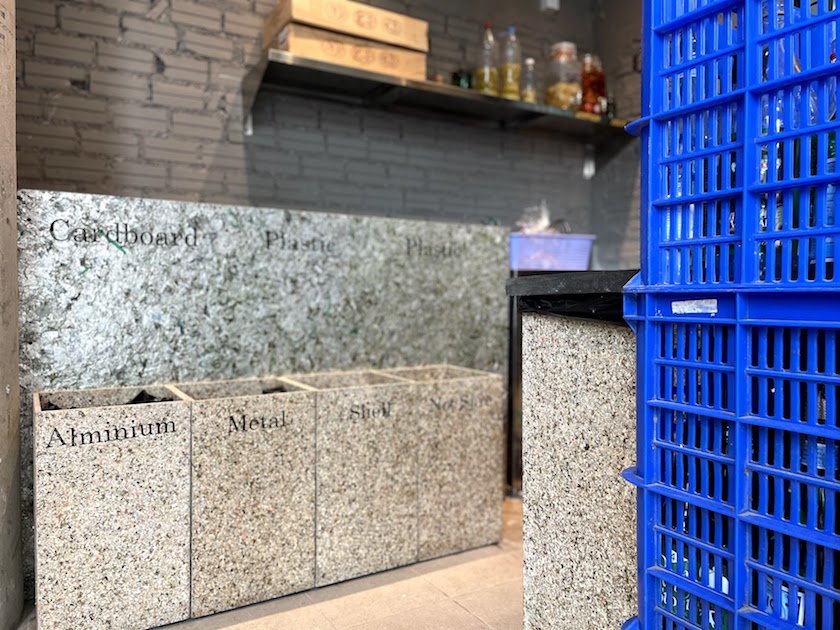
At the sustainable restaurant, used glass water bottles are crushed and mixed with cement to make artificial marble for table surfaces. The bottom half of empty wine bottles have been converted into drinking glasses. Partnering with Andkow & Co, Pizza 4P’s recycles empty cartridge cases, which still remain after the civil war in the 1970s, into pizza servers. These empty cartridges can be collected from land in rural Cambodia.
The company’s sustainability commitment extends even to staff uniforms, which are made from excess cloth, in collaboration with local NGO, Daughters of Cambodia.
Nagata says that two months after its opening, the restaurant achieved a zero waste rating of 90.6 per cent. Despite the wide variety of sustainable solutions, the process of implementing them is far from easy.
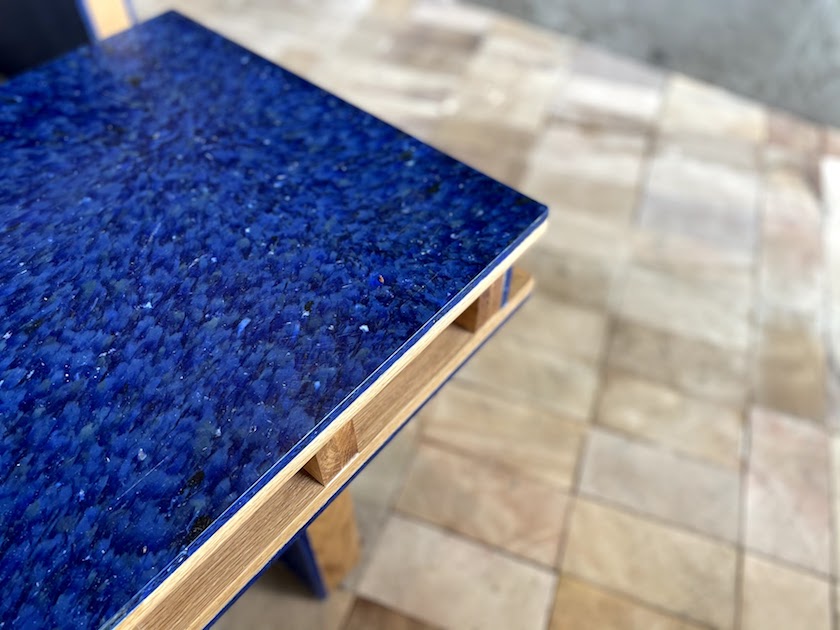
“To be honest, most of the projects take a lot of time to be approved,” he adds. “For sustainability projects, especially, we need to think about the cost. Because in most cases, sustainability does not directly contribute to sales. Sometimes it takes months or years to make it happen.
“For example, if we want to increase the organic vegetables in our sourcing, I need to talk with the sourcing department and to get aligned with the manager. How much percentage do we want to increase organic sourcing by, and what kind of items we want to replace and what will be the cost?
“That’s challenging, but I think it’s necessary as a sustainability manager,” Nagata adds. “Without communications like this, it’s difficult to change an organisation to be more sustainable.”
According to Nagata, due to the Covid-19 pandemic, most sustainability projects have been suspended as they “created a financial burden to our company”. But now they are being revived as business returns to normal.
While Pizza 4P’s has a network of 23 stores in Vietnam, the company chose Cambodia for its first zero-waste restaurant because Nagata saw an opportunity to create everything from scratch.
“We started hiring the new staff, so we can educate staff from the beginning to separate the waste property and reduce the waste as much as possible.”
Five new sustainable restaurants are slated to open in Cambodia in the next three years, and all will feature the zero-waste concept. The brand has also begun planning zero-waste stores in Vietnam.
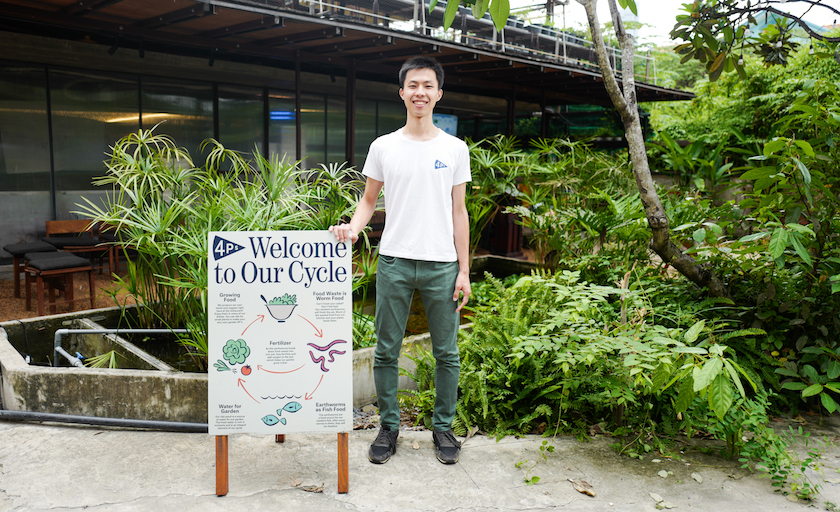
Advice for business
Graduating from Tokyo University of Agriculture, Nagata spent several years working in organic farming in Cambodia and doing consulting on solar energy and energy efficiency, before joining Pizza 4P’s at the end of 2018 as its sustainability manager.
Viable.Earth asked Nagata for recommendations for businesses planning to move forward with sustainability.
First up, Nagata advises not to start out seeking to achieve 100-per-cent sustainability.
“There is no such thing as 100 per cent sustainable. It’s a journey of improvement and we just need to keep improving, selecting the better ideas and options for the planet. We should just keep working on it.”
You might also be interested in reading about another sustainable restaurant, Australia’s first zero-carbon restaurant looks to expand abroad.

